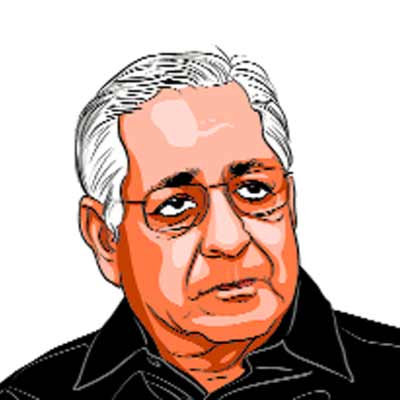Opinion Its in the numbers
On Governor Bhardwajs reluctance to convene the House
Karnataka Governor H.R. Bhardwajs persistence in preventing Chief Minister B.S. Yeddyurappa from substantiating his claim of majority support by convening a session of the assembly is a grave constitutional impropriety. It is well settled by the Supreme Court that majority support cannot be determined by the subjective assessment of the governor in the Raj Bhavan,because the constitutionally ordained method for determining whether a party commands majority is by a floor test in the House. It is also settled law that the governor must act according to ministerial advice. Therefore,he is obliged to convene a session of the House as requested by the ministry. His failure to do so is a dereliction of his gubernatorial duty.
What are the purported reasons for the governors refusal to convene the House? Surmises and conjectures about manipulation of votes by horsetrading and unethical practices. It is interesting to learn what happened in 2005 when Nitish Kumar was prevented by governor Buta Singh from staking his claim to form the government in Bihar on the allegation that a majority could be cobbled by distortion of the system due to allurement and bribery. In his report,Singh stated that a situation had emerged in which no political party or group appeared to be able to form a government that could command a majority in the House. According to Singh,this was a case of failure of constitutional machinery. Therefore,presidents rule was recommended in the state. Based on the governors report,the Centre imposed presidents rule in Bihar.
The Supreme Court in its landmark judgment of January 2006 in Rameshwar Prasad v Union of India struck down the imposition of presidents rule. The court endorsed the recommendation of the Sarkaria Commission and reiterated the principles laid down in S.R. Bommais case that power under Article 356 cannot be exercised for the purpose of securing good government,nor can it be invoked merely on the ground that there are serious allegations of corruption. That has to be dealt with in different fora and not by dissolving an elected legislative assembly which commands the confidence of the House as previously laid down in Bommais case. The Supreme Court held that the governors action was a clear case where attempt was to somehow or the other prevent the formation of a government by a political party an area wholly prohibited insofar as the functions,duties and obligations of the governor are concerned. It was thus a wholly unconstitutional act.
Thereafter the court made extremely significant observations: If a political party stakes claim to form a government and satisfies the governor about its majority to form a stable government,the governor cannot refuse formation of the government because of his subjective assessment that the majority was cobbled by illegal and unethical means. No such power has been vested with the governor. Such a power would be against the democratic principles of majority rule. The governor is not an autocratic political ombudsman. If such a power is vested in the governor and/ or the president,the consequences can be horrendous. The ground of maladministration by a state government enjoying majority is not available for invoking power under Article 356 for imposing presidents rule.
This clear judicial precedent Bhardwaj has chosen to ignore. It is a grievous error not to learn from lessons of the past in deciding ones future course of conduct. Bhardwaj has,in a recent press release,sought to justify his action by relying on the recent judgment of the Supreme Court which held that the disqualification of 11 BJP MLAs by the speaker was invalid. The court invalidated the speakers order on the ground that there was breach of natural justice because adequate opportunity was not given to the legislators,that the speaker had acted in hot haste and that his action displayed a partisan trend. There is not a single para or sentence in the said judgment that passes any strictures on the chief minister or indicts the state government. There is no finding whatsoever of collusion or conspiracy of the chief minister with the speaker. It is incomprehensible how this judgment can justify imposition of presidents rule on the ground of failure of constitutional machinery when there is no deadlock or impasse which prevents the assembly from functioning normally.
The most distressing part is that Governor Bhardwaj has thrown impartiality to the winds as is evident from the tone and language of his utterances and his recent press release purporting to justify his recommendation for the imposition of presidents rule. He has revealed himself as a combative litigant who has a single-point agenda namely to remove the chief minister. This is totally unbecoming of the high office of the governor,an office which needs to be preserved by dignity and decorum and by not indulging in partisan politics.
The writer is a former attorney-general of India





